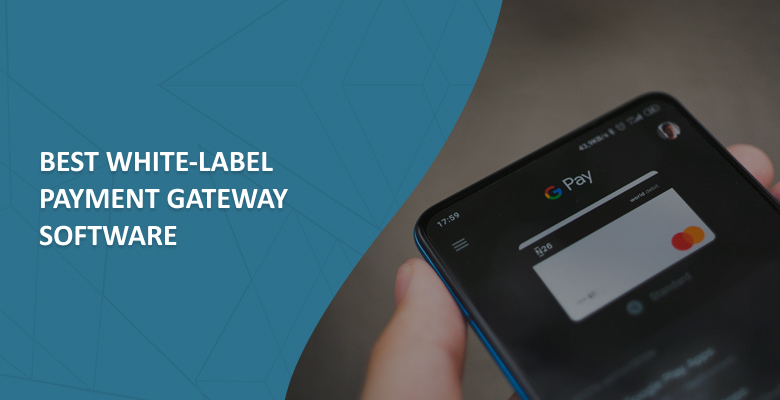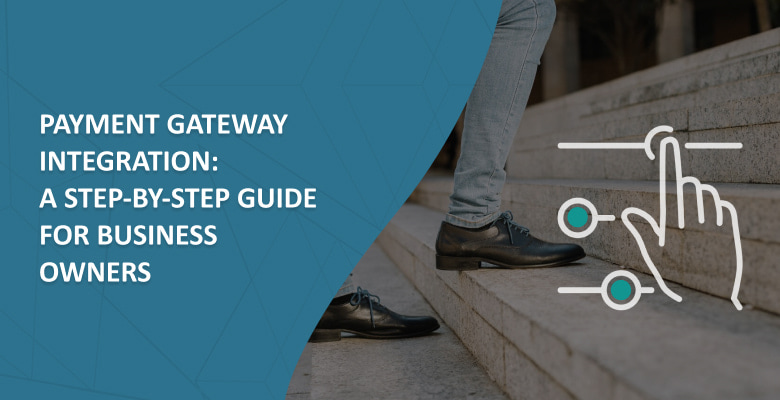
- What is Hosted Payment Page?
- How Hosted Payment Pages Work
- Benefits of Hosted Payment Pages
- When Should I Use a Hosted Payment Page?
- When is It Better Not to Use a Hosted Payment Page?
- How to Choose a Hosted Payment Page Provider?
- How to set up a hosted payment page
- Akurateco’s Hosted Payment Page Solutions
- Conclusion
Accepting payments online can pose challenges for businesses of all kinds, as the development of a payment system and the acquisition of essential licenses and certifications may be intricate and demanding. However, the complexities associated with the process can be largely eliminated by adopting a Hosted Payment Page, as it enhances transaction security and simplifies PCI DSS compliance for merchants while streamlining the checkout process for consumers.
In this article, we’ll guide you through the basics of a hosted payment page and help you identify whether it is the right fit for your business.
What is Hosted Payment Page?
Hosted Payment Page, abbreviated as HPP, is an external web page that customers are redirected to in order to pay for their purchase.
Essentially, the term “hosted” indicates that the payment page is hosted by a third-party payment provider, not the merchant directly. It means that instead of handling the entire payment process on the merchant’s website, a specialized third-party executes transaction processing on its website on the merchant’s behalf.
Merchants using hosted payment pages do not receive or store sensitive transaction data on their end. This eliminates the need for them to adhere to Payment Card Industry Data Security Standards (PCI DSS) as well as other regulations related to secure data storage in their region.
How Hosted Payment Pages Work
HPP works by transferring the customer to a secure third-party website of a payment system provider to make a payment. Here’s a step-by-step explanation of how a hosted payment page typically works:
- When a customer is ready to pay for a purchase on a merchant’s website and proceeds to checkout, the merchant’s website generates a request to the third-party payment system provider.
- The customer is automatically redirected to a secure HPP provided by the third-party service. It is hosted on the provider’s servers and designed to collect sensitive data securely.
- The customer enters their payment information on the hosted page, and the third-party service proceeds with transaction processing.
- Once the transaction is processed, the customer is automatically returned to the merchant’s website. They receive confirmation of the transaction, indicating whether or not the transaction was processes successfully.
- Lastly, the third-party payment system provider reports the transaction status to the merchant’s website, ensuring the order is properly recorded and the purchase can be delivered.
Benefits of Hosted Payment Pages
Hosted payment pages offer multiple benefits to both merchants and customers. They include:
No technological development
Businesses don’t need to undertake any payment infrastructure development or maintenance on their side to start accepting payments via HPP. It allows merchants to avoid spending plenty of costs and resources as the infrastructure is provided and maintained by a specialized third-party payment system provider. Also, with no technological development, merchants can redirect their focus and resources to their core business activities rather than diverting efforts into maintaining payment infrastructure.
Quick implementation
Due to the pre-built nature of hosted payment pages, they are quickly integrated into the merchant’s website, allowing them to start accepting payments for goods and services in no time.
Enhanced security
As the customer enters their payment information on the third-party page of the payment provider, their data is safeguarded through mandated security protocols. Plus, the merchant’s website does not handle sensitive transaction details, minimizing fraud and data breach risks.
No PCI DSS compliance
As the merchant doesn’t handle or store customers’ sensitive data, they don’t need to comply with PCI DSS, which is renowned for its complex multi-step procedure. This not only saves businesses a significant amount of money but also reduces the effort involved, as responsibility for meeting PCI DSS standards falls on the payment system provider.
Streamlined checkout
HPP is developed by experts who have extensive experience in this field. Due to this, hosted pages for payment ensure the security of sensitive data and integrate a user-friendly design to minimize errors. Furthermore, HPP often employs advanced financial technologies that decrease the likelihood of false declines. This way, HPP contributes to a smooth and reliable payment flow, lowering cart abandonment risk.
HPP branding
Although HPP is hosted by a third-party provider, they typically offer the option to incorporate the company’s unique branding and style. By doing so, you can ensure a consistent branding experience for customers when they are redirected to the external web page for payment.
When Should I Use a Hosted Payment Page?
Merchants should consider using HPP in various scenarios to make transaction processing more efficient. Here are several situations when hosted payment pages are particularly beneficial:
For handling international transactions
HPPs often support multiple payment methods and currencies, which makes them well-suited for international transactions. This versatility enhances merchants’ ability to cater to a broad spectrum of payment preferences, ensuring a smooth checkout experience for international customers.
To accept payments with limited technical resources
A ready-to-go hosted payment page is the most simple and cost-effective way to start accepting payments for goods and services online. This solution highly benefits businesses with limited technical resources as it doesn’t demand technological development from the merchant.
When quick implementation is needed
In time-sensitive situations, such as launching a new product or entering a new geolocation, HPP enables quick implementation, allowing merchants to start accepting payments in a matter of days. HPP can serve as a temporary solution for launching a business and later transitioning to an in-house payment system or as a permanent option for accepting payments.
To eliminate PCI DSS compliance
Whether to comply with PCI DSS is a decision each merchant must make independently. Yet, it shapes how you can receive payments. If you prefer not to undergo a complex compliance process on your website to avoid significant expenditures, HPP is the suitable method for accepting payments, as the responsibility for PCI DSS compliance rests with the vendor.
To enhance transaction security
Businesses can add an extra layer of protection to the payment process by using HPP since customers enter their payment information on a trusted third-party website, which is protected with advanced security protocols, reducing fraud and data breaches.
When is It Better Not to Use a Hosted Payment Page?
Although a hosted checkout page offers numerous benefits to businesses, there are scenarios where it may not be the best choice. Here are situations when it might be better not to use hosted payment pages:
In-house technical expertise and resources
If you have allocated the necessary financial resources and have time and an experienced developers team at your disposal, either in-house or external, building and maintaining a payment system tailored precisely to your business needs may be more beneficial.
Advanced customization needs
Businesses that require highly specific customization of the checkout page, such as high-end retailers, specialized industries, and others, may find HPP limiting. An integrated payment solution makes more sense if your brand or business strategy requires extensive customization.
Specific integration requirements
When a business has specific integration needs that exceed the capabilities of hosted payment pages, such as real-time synchronization with inventory management systems, customer relationship management (CRM) tools, or other proprietary software, opting for another payment gateway integration type or an in-house solution becomes essential.
How to Choose a Hosted Payment Page Provider?
Choosing an HPP vendor is a critical decision that will significantly impact your payment operations and customer experience. The first thing to pay attention to when choosing a hosted payment gateway with an HPP integration option is its adherence to mandatory security standards like PCI DSS and data protection protocols.
Next is the ease of integration. It’s advisable to look for a provider that offers seamless HPP integration with your website, keeping the integration process transparent and offering their support to assist you during the setup. It saves the hassle for both parties and ensures that you do not require additional development.
Also, discuss HPP’s customization options beforehand to ensure you and the vendor are cohesive about how to customize the checkout page, protecting your customers’ trust.
Another significant detail is supported payment methods, countries, and currencies, primarily if you already operate globally or plan to expand internationally. Also, you need to consider whether HPP’s payment methods offered by the vendor are relevant to your target audience.
Lastly, you need to check the transaction fees, setup costs, monthly or yearly subscriptions, and any other associated expenses to make sure that they stay within your budget and are free of hidden charges.
How to set up a hosted payment page
When you opt for a hosted payment solution, setting it up involves several steps that may differ between providers. Here’s a breakdown of the steps involved in installing hosted payment pages:
Choose a provider
Considering the abovementioned factors, select a hosted payment page provider from among the available hosted payment gateways on the market.
Create a merchant account
Register in the provider’s system and submit the necessary business information. Log into the merchant dashboard or administration panel provided by the vendor. This is where you’ll configure system settings and access transaction details.
Customize your checkout page
Customize your checkout page, aligning it with your brand using custom logos, colors, and design elements.
Integrate HPP with your website
Obtain an integration code or API credentials and embed them into your website to enable customers to be seamlessly redirected to your hosted payment page.
Run tests and go live
Perform the necessary tests to ensure proper integration. Once testing is successful, you can finally switch to live mode and start accepting payments.
While hosted payment page setup may seem like a complicated, burdensome task, there is no need to do this alone. With an advanced payment software provider like Akurateco, you can focus on your core business processes while our experts set up and configure HPP according to your requirements and train your team to use it efficiently.
Akurateco’s Hosted Payment Page Solutions
Akurateco is a leading white-label payment gateway provider, offering various integration types such as HPP, API REST, API SOAP, mobile SDK, and CMS plugins.
With over 15 years of hands-on experience in financial technologies, our team has developed a payment platform that extends beyond a simple third-party checkout page. Our comprehensive, ready-made solution incorporates advanced technologies for conversion increase and lower decline rates, such as intelligent routing and cascading, helping you boost business revenue. It also integrates over 300 global and local banks and payment methods available via one integration into our platform.
Recognizing the paramount importance of transaction security, we provide a hosted payment page fortified with advanced fraud prevention technologies. Plus, with your customers needing a sense of confidence when they make a payment on a third-party website, we provide extensive customization options for your HPP, allowing you to incorporate your brand’s logo, colors, and style. Additionally, to cater to diverse payment needs, our smart checkout technology can be configured to adapt to users’ payment preferences.
Conclusion
Hosted Payment Page emerges as an easy-to-integrate yet highly secure, customizable, and user-friendly solution for businesses seeking to accept payments for goods and services worldwide. With its advanced flexibility, robust security features, and seamless integration capabilities, it plays a key role in improving customers’ overall shopping experience while letting merchants focus on their core business operations.





